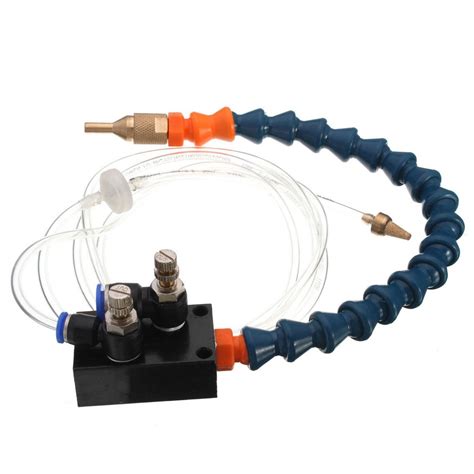best coolants for cnc machines By considering these best practices and performance criteria, you can confidently select the ideal CNC coolant for your specific machining requirements, promoting efficiency, longevity, and environmental sustainability. Get wire and metal components from Art Wire Works, Inc., metal fabrication manufacturers in Bedford Park, IL. We specialize in sheet metal fabrication and welding. (630) 412-0537
0 · mist coolant system for cnc
1 · machine coolant concentration chart
2 · lubricant used in cnc machine
3 · coolant system for milling machine
4 · coolant mixers for cnc equipment
5 · coolant concentration for machining
6 · coolant concentration for cnc machines
7 · best semi synthetic machine coolant
Tuf-Tite 4-Hole Distribution Box. Comes complete with a lid. Lid is 11' x 11' -- Box is 15-1/2' tall -- There is a 2' drop between inlet and outlets for proper flow to the field lines. Used with multiple schedules of 4' Pipe sch40 pvc, sch 20 pvc, sdr 26 green pvc pipe. Includes 3 Orange Seals & 3 Yellow Rings. The rings are for different such .
Make the best choice for your CNC machine by selecting a coolant that is reliable, efficient, and specifically formulated for the demands of machining processes. Opting for top-rated coolants will undoubtedly contribute to the smooth functioning and longevity of your CNC . Selecting the right CNC coolant is crucial for top machining performance. Coolants impact tool life, efficiency, and fluid consumption by reducing heat, friction, and debris. Oil-based, water-based, and synthetic . This article provides a comprehensive look at the types of CNC machine tool coolants available, their uses across industries, the importance of selecting the right coolant, . Soluble oils are among the most commonly used coolants in CNC machining. They are essentially mineral oils that are diluted with water to form an emulsion. Why Use Soluble Oils? Cooling and Lubrication: Soluble oils .
By considering these best practices and performance criteria, you can confidently select the ideal CNC coolant for your specific machining requirements, promoting efficiency, longevity, and environmental sustainability.
In this comprehensive guide, we will explore the different types of coolants available, their features, and the factors to consider when choosing the best coolant for CNC machines. Table . Coolants can be broadly classified into several categories, each with distinct properties and applications: 1. Water-Based Coolants. Example: A water-based coolant .
Virtually all CNC machining centers and lathes today are designed to use water-based fluids, but most Swiss-style screw machines use straight oil. There are three categories of coolants that sometimes overlap: soluble oils, . Learn how to choose the right coolant for your CNC machining needs. Discover the importance of selecting a coolant with anti-foaming properties, consulting with suppliers, and .
mist coolant system for cnc
Make the best choice for your CNC machine by selecting a coolant that is reliable, efficient, and specifically formulated for the demands of machining processes. Opting for top-rated coolants will undoubtedly contribute to the smooth functioning and longevity of . Selecting the right CNC coolant is crucial for top machining performance. Coolants impact tool life, efficiency, and fluid consumption by reducing heat, friction, and debris. Oil-based, water-based, and synthetic coolants offer varying benefits. No matter what type of CNC machining you do, CNC coolants play a critical role. They help increase tool life and offer a better surface finish on the machined parts. By understanding the available coolant types, you can select a .
This article provides a comprehensive look at the types of CNC machine tool coolants available, their uses across industries, the importance of selecting the right coolant, and the factors to consider when choosing the best coolant for CNC machining.
Soluble oils are among the most commonly used coolants in CNC machining. They are essentially mineral oils that are diluted with water to form an emulsion. Why Use Soluble Oils? Cooling and Lubrication: Soluble oils provide a balance between cooling and lubrication.

By considering these best practices and performance criteria, you can confidently select the ideal CNC coolant for your specific machining requirements, promoting efficiency, longevity, and environmental sustainability.In this comprehensive guide, we will explore the different types of coolants available, their features, and the factors to consider when choosing the best coolant for CNC machines. Table of Contents: 1. Importance of Coolants in CNC Machines. 2. Types of Coolants\ a. Water-Based Coolants\ b. Synthetic Coolants\ c. Semi-Synthetic Coolants. 3. Coolants can be broadly classified into several categories, each with distinct properties and applications: 1. Water-Based Coolants. Example: A water-based coolant containing rust inhibitors and biocides is used for milling aluminum parts on . Virtually all CNC machining centers and lathes today are designed to use water-based fluids, but most Swiss-style screw machines use straight oil. There are three categories of coolants that sometimes overlap: soluble oils, synthetic fluids and semisynthetic fluids.
Learn how to choose the right coolant for your CNC machining needs. Discover the importance of selecting a coolant with anti-foaming properties, consulting with suppliers, and testing before full implementation for optimal machining performance. Make the best choice for your CNC machine by selecting a coolant that is reliable, efficient, and specifically formulated for the demands of machining processes. Opting for top-rated coolants will undoubtedly contribute to the smooth functioning and longevity of . Selecting the right CNC coolant is crucial for top machining performance. Coolants impact tool life, efficiency, and fluid consumption by reducing heat, friction, and debris. Oil-based, water-based, and synthetic coolants offer varying benefits. No matter what type of CNC machining you do, CNC coolants play a critical role. They help increase tool life and offer a better surface finish on the machined parts. By understanding the available coolant types, you can select a .
This article provides a comprehensive look at the types of CNC machine tool coolants available, their uses across industries, the importance of selecting the right coolant, and the factors to consider when choosing the best coolant for CNC machining. Soluble oils are among the most commonly used coolants in CNC machining. They are essentially mineral oils that are diluted with water to form an emulsion. Why Use Soluble Oils? Cooling and Lubrication: Soluble oils provide a balance between cooling and lubrication. By considering these best practices and performance criteria, you can confidently select the ideal CNC coolant for your specific machining requirements, promoting efficiency, longevity, and environmental sustainability.In this comprehensive guide, we will explore the different types of coolants available, their features, and the factors to consider when choosing the best coolant for CNC machines. Table of Contents: 1. Importance of Coolants in CNC Machines. 2. Types of Coolants\ a. Water-Based Coolants\ b. Synthetic Coolants\ c. Semi-Synthetic Coolants. 3.
Coolants can be broadly classified into several categories, each with distinct properties and applications: 1. Water-Based Coolants. Example: A water-based coolant containing rust inhibitors and biocides is used for milling aluminum parts on .
Virtually all CNC machining centers and lathes today are designed to use water-based fluids, but most Swiss-style screw machines use straight oil. There are three categories of coolants that sometimes overlap: soluble oils, synthetic fluids and semisynthetic fluids.
metal fabricator poland

metal fabricator tulsa
This Mirrors item is sold by BellasTreasureTrove. Ships from Midlothian, VA. Listed on Jun 14, 2024
best coolants for cnc machines|coolant mixers for cnc equipment